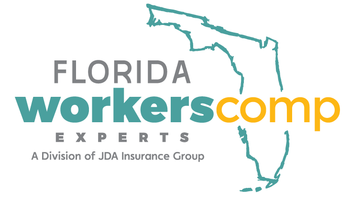Why a Workers Compensation Audit?
When a business’ workers compensation insurance policy first becomes effective, the initial policy term’s premium is based upon a number of factors:
- The assigned classifications of each employee of your business
- Your company’s estimated payrolls (often referred to in the insurance industry as remuneration)
- Your company’s Experience Modification factor
Once the policy expires and the insurer has a year’s worth of data and other information on your company, the insurer can then conduct an audit, use the information it collects in that audit as well as during the initial policy term and turn the estimated payrolls and other information into a more accurate picture of your business’s workers’ compensation risks. This includes conversion of estimated payrolls into actual payrolls and assigning each of your business’s employees to a classification code. The audit process is deliberately designed by each insurer so that any mistakes, incomplete or mistaken information is interpreted and construed in favor of the insurer. By preparing all of the information that will be required during an audit at your policy’s inception, you can ensure that your business experiences an audit that is accurate, free of mistakes and results in substantial savings on your worker’s compensation premiums.
Preparing for the Auditor
Schedule the audit itself for some time in the afternoon, after lunch, preferably on a Friday.
Prior to the Auditor’s Arrival:
- Prepare a basic, written description of your business and its operations to provide to the auditor. This can often limit the questions the auditor may ask you
- Prepare a summary showing the following:
- Total payroll, summarized by employee class code
- Ensure excluded wages and remuneration are properly subtracted, such as overtime, officers’ compensation, etc.
- Obtain copies of the certificates of insurance for all subcontractors who have performed any work for you over the past year
- Ensure the subcontractors were properly covered by insurance for the entire period for which they performed work for you
- Total payroll, summarized by employee class code
The Day of the Audit:
- Treat the auditor like a welcome guest
- Provide the auditor with a clean, quiet, well-lit space to work
- Assign your most friendly employee to work with the auditor and give the auditor a tour of your business (if requested)
- Answer only the specific questions asked by the auditor!
- Volunteering additional information could come back to hurt your business
- Do not guess if you do not know a particular answer-advise the auditor you will obtain the requested information and provide it to him or her
- Provide the auditor with the following, in this order:
- Written description of your business
- Actual payroll and run report
- Quarterly payroll reports
- Subcontractor and subcontractor’s insurance information
- Make sure to obtain a copy of the auditor’s worksheet before he or she leaves
- Ask the auditor for a summary of his or her results prior to the auditor leaving your business
After the Audit:
- Obtain a copy of the final audit billing
- Review the audit summary and the final audit billing carefully to ensure the following are all correct:
- Deposit premiums
- Any other applicable credits
- Any applicable discounts
- Ensure the correct experience modification factor was used!
- If the final audit billing is consistent with the audit summary, then you can close the case
- If it is not correct, then review the worksheet used by the auditor to identify where the mistakes were made and contact the insurer to resolve any mistakes or issues you have identified
Have You Already Been Through an Audit?
Let the Certified Workers Compensation Expert at JDA Insurance Group Perform an Audit Review. The highly trained, nationally certified workers compensation insurance professionals at JDA Insurance Group can review the results of your company’s audit and assist in determining whether the insurer made any mistakes in either the audit itself or pricing your policy.
- Our experienced insurance professionals will do the following as part of this service:
- Analyze your business’s operations, job classifications and the codes used by the insurer in your workers’ compensation policy and audit
- Review of your experience modification factor or merit rating from your insurer
- Confirm the correct policy credits (including premium, experience and schedule credits) and discounts were applied both to your policy as well as your audit
